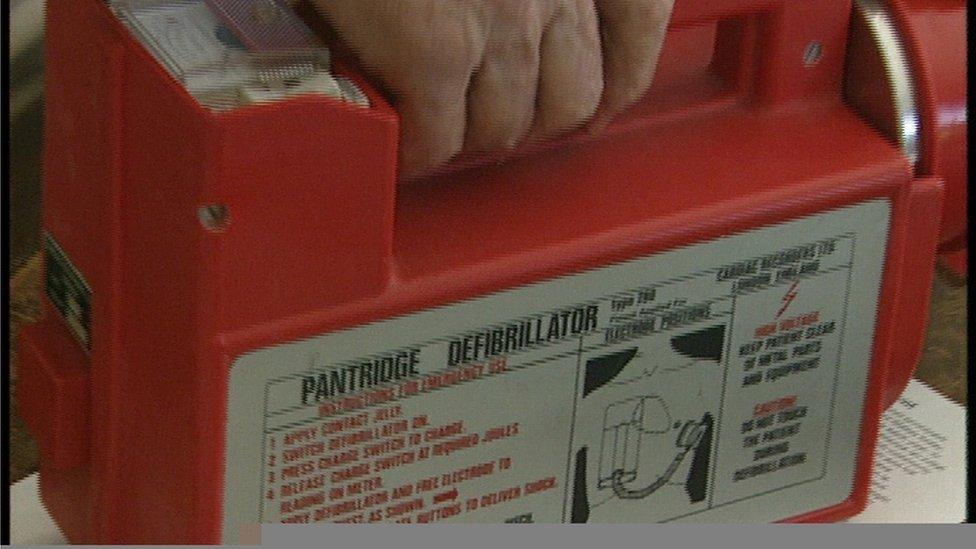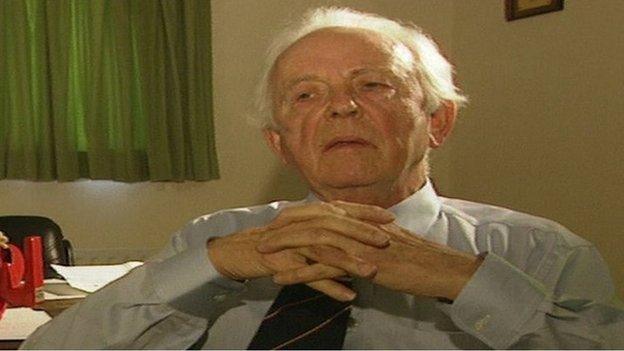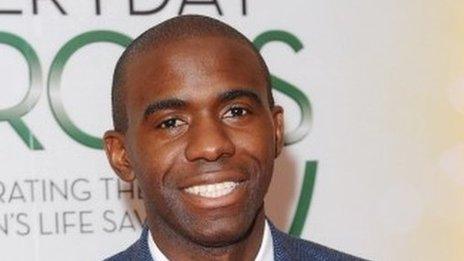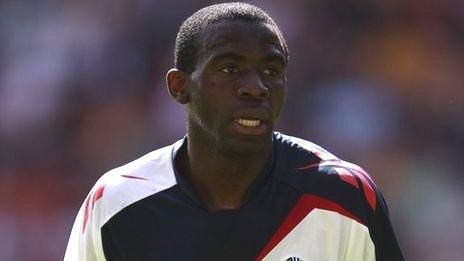Frank Pantridge, the 'father of emergency medicine'
- Published

Frank Pantridge helped save many lives
Professor Frank Pantridge is remembered as the cardiologist who invented the portable defibrillator - a device that has helped save millions of lives over the past 50 years.
One hundred years since his birth on 3 October 1916, his family and former colleagues have been talking about the private side of the famous doctor.
Victoria Jordan, his great-niece, remembers him with fondness.
"In our family, Frank is remembered as a big personality who was completely dedicated to his work, but who would take centre stage at family gatherings at which he would invariably arrive at least an hour late", she said.
"He was great company, had a mischievous streak and a low opinion of those in authority - and in particular, politicians!"
This lack of respect for authority was a common theme and is the reason, some believe, that he has not received the credit in the UK that his achievements deserve.
Expelled from school - several times
While Pantridge would go on to save many lives because of his invention - including the high-profile case of former footballer Fabrice Muamba, who collapsed on the pitch in 2012 and was saved by a portable defibrillator - his early life was somewhat troubled.

Fabrice Muamba's heart stopped for 78 minutes before he was saved
He grew up on a farm on the outskirts of Hillsborough, County Down, his father died when he was 10 and he was expelled from school several times.
But he completed his secondary education at Friends School, Lisburn, and went on to study medicine at Queen's University, Belfast, qualifying in 1939.
When World War Two broke out, he was posted to the Far East as medical officer to an infantry battalion.
He was captured during the fall of Singapore in 1942 and, as a prisoner of war, spent much of his time as a slave labourer on the Burma Railway.
Military Cross
Pantridge survived the usually fatal cardiac beriberi - where protein deficiency damages the heart - which may have sparked his interest in heart disease.

A statue of Frank Pantridge sits outside Lisburn Civic Centre in County Antrim
He was later awarded the Military Cross for his service, with the citation reading: "This officer worked unceasingly under the most adverse conditions of continuous bombing and shelling and was an inspiring example to all with whom he came into contact. He was absolutely cool under the heaviest fire."
In 1950, he was appointed as a physician at the Royal Victoria Hospital in Belfast. At that time, coronary heart disease had reached epidemic proportions,
Doctors knew that most coronary deaths resulted from a disturbance of the heart rhythm which could be corrected with a brief electric shock to the chest.
Prof Pantridge suggested such disturbances should be corrected where they occurred, whether it be in the workplace, at home or on the street. But this meant a portable defibrillator.
In 1965, with the help of John Geddes, a senior house officer, and technician Alfred Mawhinney, Prof Pantridge invented the world's first portable defibrillator, using car batteries for the current.
He installed it in an ambulance and the device was first used in January 1966. That first model weighed 70 kilos, the modern devices weigh just 3kg.

Pantridge's invention ran on car batteries
The so-called "Pantridge plan" was taken up in America where mobile units were swiftly put into operation.
But in the UK, his invention was met with ridicule in some medical circles. It would be 1990 before all front-line ambulances in the UK were fitted with the device.
The mobile defibrillator was used to treat US President Lyndon Johnson when he suffered a heart attack in Virginia in 1972.
It was said that Frank Pantridge became so well known in America that he could have run for Congress.
As a result of his invention, the process emergency departments use to treat cardiac arrest is known as "The Belfast Protocol".
No knighthood
Pantridge, the individual, was regarded as both complex and outspoken.
He died in 2004. In his obituary in the Guardian newspaper observed: "Unquestionably focused and brilliant, he brought about unique advances in cardiology.
"He could be cantankerous, gruff, even rude, and yet witty and generous. For him to like someone he had to respect them and he could then be a very loyal friend."

Frank Pantridge's impact on emergency medicine continues to be widely felt today
Many in the medical field believe it was his outspoken nature and problems with authority that meant he did not receive a knighthood.
Ronnie Kelly has happy memories of his time working with the cardiologist.
"Frank was a very talented man," he said. "I was part of the design team at the Royal that put the portable defibrillator into production," he said.
"He made the cardiac defibrillator more accessible and, in turn, saved many lives. I am very proud that I had the opportunity to play a small part in making this happen."
Victoria Jordan said her family are very proud of her great-uncle's achievements. "I think he would be pleased to be remembered as a pioneer in his branch of medicine and as someone who was proud of his roots in the countryside outside Hillsborough," she said.
- Published1 May 2014

- Attribution
- Published17 March 2012
